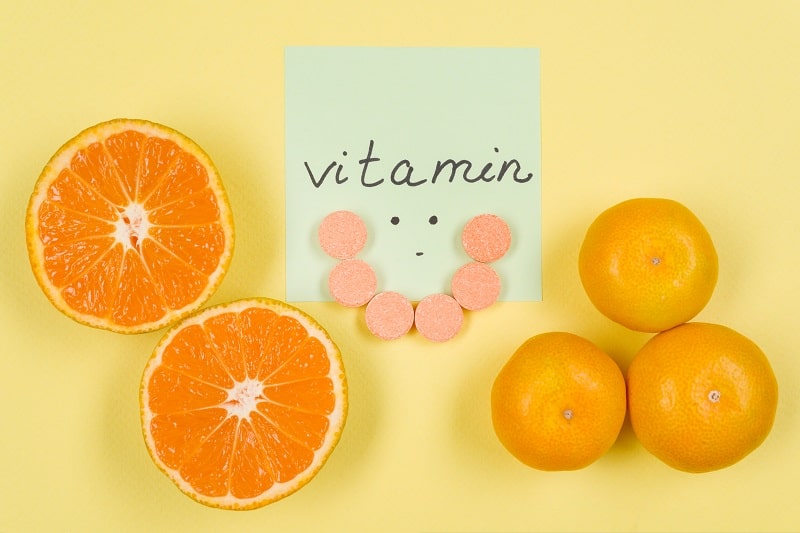Ascorbic acid, commonly known as vitamin C, is a water-soluble vitamin and antioxidant essential for various physiological processes in the human body. It plays a crucial role in collagen production, wound healing, and the absorption of iron from plant-based foods. Ascorbic acid is found naturally in many fruits and vegetables, and it is also available as a dietary supplement.
Historical Context
The discovery of ascorbic acid as a vital nutrient occurred in the early 20th century, notably by the work of scientists Albert Szent-Györgyi and Norman Haworth. Their research laid the foundation for understanding its role in preventing scurvy, a disease caused by vitamin C deficiency, which had plagued sailors for centuries.
Production and Sourcing
Ascorbic acid can be synthesized through various methods, including chemical synthesis and fermentation processes. It is commonly sourced from citrus fruits, such as oranges and lemons. Additionally, many food manufacturers use ascorbic acid as a food additive to preserve the color and freshness of foods.
Applications
Ascorbic acid is widely used in the food industry as a preservative and antioxidant to prevent the oxidation of food products. It is also a common dietary supplement, available in various forms, including tablets, capsules, and powdered supplements. Ascorbic acid’s applications extend to skincare products, where it is known for its ability to promote collagen production and protect the skin from oxidative damage.
Regulatory Framework
Ascorbic acid is generally recognized as safe (GRAS) by regulatory agencies, including the U.S. Food and Drug Administration (FDA). It is regulated as a dietary supplement and a food additive, and manufacturers must adhere to labeling and safety regulations to ensure the quality and safety of products containing ascorbic acid.
Consumer Concerns
Consumers may have concerns about allergic reactions or digestive discomfort when taking high doses of ascorbic acid supplements. It is advisable for individuals to follow recommended daily intake guidelines and consult healthcare professionals if they have specific health concerns or conditions that may interact with vitamin C supplementation.
Health and Safety
Managing allergenic substances is essential for the health and safety of individuals with allergies. This includes avoiding known allergens, carrying prescribed epinephrine auto-injectors for severe reactions, and seeking medical attention in case of an allergic response.
Applicable Products

- Food and Beverages: Ascorbic acid is commonly used in the food industry to preserve the color and quality of fruits, vegetables, and processed foods. It is also found in various fortified beverages and fruit juices.
- Dietary Supplements: Vitamin C supplements, often in the form of ascorbic acid, are available in tablets, capsules, and powders, providing individuals with a convenient way to meet their daily vitamin C requirements.
- Skincare Products: Many skincare products, including serums and creams, contain ascorbic acid for its antioxidant properties, which can help brighten the skin and reduce signs of aging.
Alternatives
While ascorbic acid is the most common form of vitamin C used in supplements and food preservation, there are other forms of vitamin C, such as sodium ascorbate and calcium ascorbate, which are less acidic and may be suitable for individuals with sensitivities to ascorbic acid.
Scientific Research
Scientific research on vitamin C continues to explore its role in human health, including its potential benefits in boosting the immune system, reducing the risk of chronic diseases, and supporting overall well-being. Studies also investigate the use of high-dose vitamin C in medical contexts, such as cancer treatment and wound healing.
Chemical Properties
Ascorbic acid, with the chemical formula C6H8O6, is a white crystalline powder that is highly water-soluble. It is an organic compound with antioxidant properties, making it an essential nutrient for humans.
Case Studies
Case studies involving ascorbic acid often focus on its role in preventing and managing scurvy, a condition caused by vitamin C deficiency. These studies highlight the importance of including vitamin C-rich foods in one’s diet to maintain good health.
Synonyms
Synonyms for “Ascorbic Acid” include “Vitamin C” and “L-ascorbic acid.”
Conclusion
Ascorbic acid, also known as vitamin C, is a vital nutrient with diverse applications. Its role in supporting the immune system, promoting collagen production, and acting as a powerful antioxidant underscores its significance in maintaining good health. Whether obtained through dietary sources or supplements, ascorbic acid contributes to overall well-being and remains an essential part of nutrition and healthcare.
Find out more about how Healthy Fruits can aid in your overall health and well-being.







